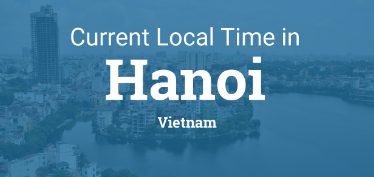
The concept of ‘Vietnam time’ encapsulates a multifaceted approach to timekeeping deeply rooted in the country’s rich history and cultural fabric. From the intricate interplay between tradition and modernity to the subtle nuances of punctuality and social norms, understanding Vietnam’s temporal dynamics unveils a captivating narrative that transcends mere clock time. Exploring the complexities of time perception in Vietnam offers a gateway to unraveling the intricate tapestry of cultural values and practices that shape interpersonal interactions and daily life in this vibrant Southeast Asian nation.
Historical Context of Vietnam Time
The historical context of Vietnam Time is intricately entwined with traditional historical timekeeping methods and colonial influences.
From the Chinese dynasties to French colonization, Vietnam’s time perception has evolved.
Colonial influences introduced Western timekeeping systems, impacting societal structures.
This rich tapestry of historical events has molded Vietnamese time consciousness, reflecting both indigenous practices and external imprints that continue to shape the nation’s temporal identity.
Cultural Perceptions of Punctuality
Embedded within the fabric of Vietnamese societal norms are nuanced cultural perceptions of punctuality, reflecting a complex interplay between tradition, modernization, and external influences.
Punctuality norms in Vietnam hold significant cultural importance, often intertwining with concepts of respect, hierarchy, and social harmony.
Understanding these cultural significances is crucial for navigating Vietnamese interactions and building strong relationships within the society.
Read more : Early Life and Career Beginnings
Impact on Business and Work
The concept of time flexibility in work hours is a significant aspect influenced by Vietnam’s cultural perception of punctuality.
This flexibility can lead to challenges in communication and coordination within business settings, where differing interpretations of timeliness may impact productivity and efficiency.
Understanding and navigating these dynamics is crucial for businesses operating in Vietnam to establish effective work practices and foster successful collaborations.
Work Hours Flexibility
Implementing work hours flexibility policies can significantly impact business operations and the overall well-being of employees.
Remote work options allow employees to work across different time zones, increasing productivity and promoting a healthy work-life balance.
This flexibility enables companies to attract top talent from around the globe, leading to a more diverse and innovative workforce.
Adapting to flexible work hours can enhance employee satisfaction and overall business success.
Communication Challenges
Navigating communication challenges in a global workforce setting can significantly impact business operations and employee productivity.
Differences in time zones can lead to delays in responses and coordination, affecting project timelines.
Varying communication styles across cultures may result in misunderstandings or misinterpretations, hindering effective collaboration.
Addressing these challenges through clear communication protocols and utilizing technology for real-time interactions can enhance efficiency in cross-border business activities.
Social Etiquette and Time Management
Effective social etiquette and time management skills are essential components of navigating daily interactions in Vietnamese culture.
Social customs dictate respect for elders, with punctuality being highly valued.
Vietnam operates on Indochina Time (ICT), which is 7 hours ahead of Coordinated Universal Time (UTC+7).
Being on time for appointments is crucial, demonstrating courtesy and professionalism.
Understanding these cultural nuances is key to successful social interactions in Vietnam.
Strategies for Navigating Vietnam Time
Understanding the cultural significance of punctuality and time management is essential for effectively engaging in daily activities within Vietnamese society.
When navigating Vietnam’s time zone, travelers should adjust their schedules accordingly to avoid misunderstandings.
Travel tips include being flexible with plans, allowing extra time for transportation, and embracing the leisurely pace of life.
Embracing the Tempo of Vietnam
Adjusting to the leisurely pace of life in Vietnam requires a shift in mindset and a willingness to embrace the unique tempo of the culture.
Vietnamese rhythms are deeply intertwined with the country’s traditions and values, reflecting a blend of ancient customs and modern influences.
Understanding and appreciating these time perspectives can lead to a more fulfilling experience, allowing visitors to immerse themselves in the beauty of Vietnam’s relaxed way of life.
Conclusion
In conclusion, Vietnam time reflects a rich tapestry of historical influences and cultural perceptions that shape social interactions and business practices.
Navigating the nuances of punctuality in this unique setting requires a nuanced understanding of tradition and modernity.
Embracing the leisurely pace of life in Vietnam is like savoring a fine wine – it requires patience and appreciation for the subtle complexities that make the experience truly enriching.
